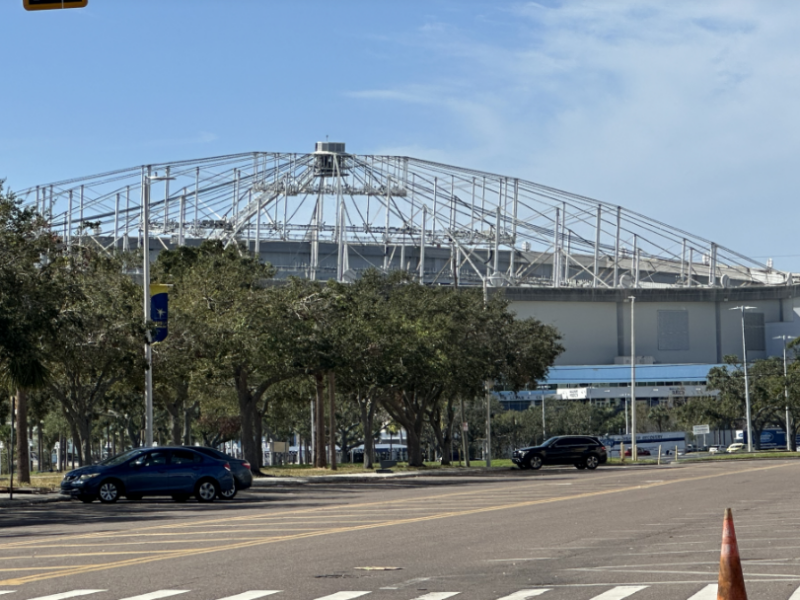Robbie Crowley
Campus & Beyond Editor
Students Charles Terzian and Reuben Pressman tried to run for Student Government positions in the USF Tampa elections, in an effort to give USF St. Petersburg students a voice within the USF system. But they were disqualified from running, because students running in the USF Tampa elections must be taking at least six credit hours on the Tampa campus.
With current rules in place, USF St. Petersburg does not have representation on the USF Board of Trustees—the student representative position is currently only available for the USF Tampa SG president. Terzian, Pressman and James Scott, USF St. Petersburg SG president, hope to change that for the future.
Scott called Terzian and Pressman’s efforts a test to see if USF St. Petersburg students are truly equals in the USF system. USF St. Petersburg students can vote in USF Tampa’s elections, but that is where participation ends.
“Tampa’s rules have not prepared for other campuses to be represented,” Scott said. “Wanting a voice is a whole new thing.”
Until recently, there was minimal student culture on USF’s three-branch campus, including St. Petersburg. But the addition of Residence Hall One on the USF St. Petersburg campus changed the idea of student culture.
“Student involvement has exponentially grown because of RHO,” Scott said. “There’s now more student culture and government. Now we are jumping in saying we want to change the governance structure.”
Pressman said he and Terzian had planned last year to run in this year’s USF Tampa elections to try to get USF St. Petersburg the student representation they say it deserves.
“We had no idea if we’d be able to run or not,” Pressman said. “Legally and logically [we] should be able to.” He said the inability to run is “differential treatment” and “unequal opportunity.”
“The fact that we can’t run is a major legal matter in the issue,” Pressman said. He believes that since USF St. Petersburg students are eligible to vote, they should also be eligible to run for office.
Terzian also hopes USF St. Petersburg students will gain better representation from the issue.
“We hope that an equitable representation solution will be found that addresses our unique relational dynamic as a separately accredited institution within the USF system,” Terzian said.
For Scott, the outcome presented the larger issue in the current system.
“Chances would’ve been hard [to win],” Scott said. “But this brought to light a bigger issue. We are not adequately represented and [USF] Tampa serves as the voice for all students. The set up doesn’t work. We have to figure out how to move forward on this.”
Scott is meeting with representatives from USF Tampa to work on improving the governance system. His first informal meeting with USF Tampa SG President Cesar Hernandez was on Feb. 23. Although no official decisions were made, they agreed the best way forward would be to first formalize responsibility among the four USF SG presidents to meet each semester, which would create an advisory board.
Scott said he hoped for this when he began his presidency, but he now sees the desire. On March 10, Scott will be part of a formal meeting that will include administrators and representatives from all four USF campuses. Although Scott sees an advisory board as a positive first step, it is not a final solution to the issue.
“Branch campuses want to be more than advisory,” Scott said. “They want to have legitimacy.”
Scott sees the issue taking months or years to fully resolve, with the fundamental question of government managing how everyone can be represented fairly.
“The fact that they agree there’s something that needs to be resolved shows the fact that they’re willing to change, even if it’s just one step forward,” Scott said. “I feel that a lot of good can come from this. It’s a major opportunity for our campus and student body to be thrust into the politics of the whole system.”
Scott said this is a big moment in the history of USF student politics.
“There’s a window of opportunity,” Scott said. “We’ve got to go for it.”


